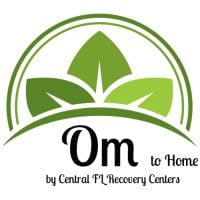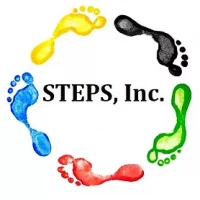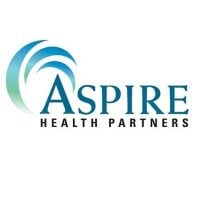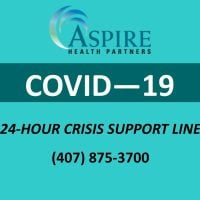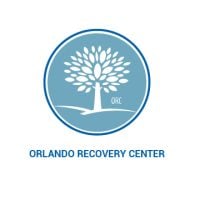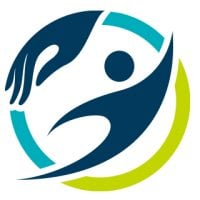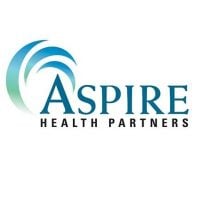Harmony Mental Health and Behavioral Services
Drug Rehab Center in Orlando, Florida
Harmony Mental Health and Behavioral Services in Orlando, Florida provides comprehensive addiction treatment services, specializing in alcoholism, drug addiction, and dual diagnosis, with a focus on lasting sobriety and affordable care through private health insurance acceptance.
About
Harmony Mental Health and Behavioral Services is an addiction treatment facility located in Orlando, Florida. They specialize in providing comprehensive treatment for individuals suffering from alcoholism, drug addiction, and dual diagnosis. With a focus on helping individuals achieve lasting sobriety, Harmony Mental Health and Behavioral Services offers a range of services and levels of care to meet the unique needs of each patient. They accept private health insurance, ensuring that treatment is accessible and affordable for those seeking recovery.
At Harmony Mental Health and Behavioral Services, the dedicated team of professionals utilizes evidence-based treatment methods to address addiction and substance abuse. They offer drug rehab programs tailored to meet the specific needs of each individual, providing a supportive and therapeutic environment for recovery. Additionally, they specialize in treating dual diagnosis, which occurs when a person has both a substance abuse disorder and a mental health disorder. The facility also offers intervention services to assist loved ones in encouraging their family members or friends to seek treatment. With an outpatient level of care, individuals have the flexibility to receive treatment while still maintaining their daily responsibilities. Harmony Mental Health and Behavioral Services is committed to helping individuals overcome addiction and providing them with the tools and support necessary for lasting recovery.
Genders
Ages
Modality
Additional
Conditions and Issues Treated
A person who struggles with addiction and a mental health condition suffers from a dual diagnosis. This means that they have two issues that must be treated. The specific mental health issues that the patient at Harmony Mental Health and Behavioral Services might have include but are not limited to:
- Depression
- Bipolar Disorder
- Anxiety
- PTSD (Post Traumatic Stress Disorder)
The specific addiction issues that the patient might have include but are not limited to:
- Alcoholism
- Drug Addiction (i.e., Cocaine, Meth, and other stimulants, Marijuana, and Ecstasy)
The combination of the two illnesses can be tough to treat. Taking care of one or the other is tough, and taking care of both cannot be done alone. A patient who receives dual diagnosis treatment will be given the best chance at becoming sober.
Levels of Care Offered
This center offers a variety of custom treatment tailored to individual recovery. Currently available are Drug Rehab, Dual-Diagnosis, Intervention, Outpatient, with additional therapies available as listed below.
An outpatient treatment program is set up to help with alcohol or drug addiction or a co-occurring disorder. The treatment must attend the treatment facility for their therapy and other programs but return home each night. The frequency of mandatory attendance decreases after much of the treatment program is complete. The treatment programs are monitored by the treatment facility and case managers who work for a judge or judge’s office. A treatment program may be performed out of a treatment facility, treatment clinic, or treatment center.
The benefits of outpatient treatment programs are many. One of the most beneficial treatment programs is that it allows treatment for clients who cannot afford or may not be able to attend treatment at a treatment facility, treatment center, or treatment clinic full-time. Another benefit of treatment programs is that they reduce crime rates because treatment allows people to treat their addiction.
There are many different kinds of services that support and help people in recovery. Interventions help families and friends share feelings, express their desire for change, and plan for concrete steps toward recovery. Interventionists are trained professionals who assist family members in arranging an intervention or lead an intervention themselves. The family members should be involved in selecting an experienced professional to lead their loved one into treatment. Intervention services are available throughout the country.
Therapies & Programs
Individualized Treatment is essential because it gives addicts the ability to participate in a program that meets their unique needs. An addict should work with professionals who understand what they’re going through, especially if the addict is actively using. Finding the right treatment program for an addict is difficult, but it’s even harder without communicating with those who have experience treating your specific situation.
Couples therapy is a treatment approach where the patients and their partners are engaged together. When a person becomes a victim of substance abuse, it affects the patient and his people, particularly his partner. Their relationship can become strained due to lack of communication, financial issues, loss of trust, lack of intimacy, and physical abuse in more severe cases. Couples therapy addresses these issues and tries to rebuild the trust between the partners. The partner’s involvement in the process will result in greater chances of treatment success and sustained recovery.
The therapies typically involve all family members, potentially including siblings, children, and parents who play a role in their daily lives. These sessions can be essential because they address past issues that may have affected an addict or alcoholic’s recovery process. They provide support during this time when it is needed most!
A family therapy session, often called a family meeting or intervention, is a necessary process that helps loved ones of addicts see their situation in a new light. It’s also one of the most challenging things families will ever have to do when they’re facing a loved one battling addiction or alcoholism.
Group therapy sessions provide recovering addicts with a chance to cope with everyday situations that many face. Group therapy sessions are held in rehab facilities, clinics, churches or community centers that offer drug addiction treatment.
People who attend these groups are encouraged to voice their feelings and support other addicts in recovery. This helps group members strengthen their own recovery program while cheering on others who are struggling with sobriety.
Cognitive Behavioral Therapy (CBT) is a highly effective treatment option based on the idea that how we feel, think and act all interact together. Our thoughts determine our feelings and behaviors; our feelings affect our thoughts, and our behaviors change our thoughts and feelings. CBT helps people explore their thoughts for problems (or false beliefs) that influence their mood and actions. By examining their thoughts and beliefs, people can recognize distorted or irrational and modify them to more realistic, positive ones. CBT is very goal-oriented, which means that the therapist and patient work together on a specific problem while learning to become more adept at solving future problems.
CBT works well with a broad range of people, including those with depression, anxiety disorders, eating disorders, and problems with anger. In addition to helping a client focus on thoughts that can be changed, CBT also allows them to take an active role in their treatment. This is called a collaborative approach because both patient and therapist work together to produce the best possible results.
CBT is based on cognitive learning theory, which says that our behavior is a learned response to our environment. Cognitive refers to thoughts and beliefs, while behavioral relates to actions or deeds. CBT helps people learn ways of behaving to improve their quality of life by focusing on specific problems or goals they want to achieve. Sometimes, CBT is used alone; other times, it is combined with medications or brief counseling techniques such as solution-focused and motivational interviewing to achieve optimal results for the patient.
Payment Options Accepted
For specific insurance or payment methods please contact us.
Is your insurance accepted?
Ask an expert, call (888) 674-0062
Additional Details
Specifics, location, and helpful extra information.
Orlando, Florida 32835 Phone Number(407) 730-3554 Meta DetailsUpdated November 25, 2023
Staff Verified
Patient Reviews
There are no reviews yet. Be the first one to write one.
Orlando, Florida Addiction Information
Florida is one of the nation's epicenters for substance abuse and drug-related overdoses. In 2014, around 410,000 Florida residents were addicted to drugs and alcohol. Over the last 10 years, 12% of all deaths in the state were attributed to substance abuse. Treatment admissions for alcohol reached 24,329 patients in 2016, and 2.5% of Florida high school students admitted to using crack cocaine.
In 2016, there were over 1,400 opioid-related overdoses in Florida, and Orlando accounted for nearly 10% of those overdoses. Cocaine was the most common drug found in overdose victims (45%). Alcohol was involved in 31% of all drug-related deaths. If you or someone you know is struggling with addiction, it is important to get help as soon as possible.
Treatment in Nearby Cities
- Longwood, FL (14.8 mi.)
- Cape Coral, FL (138.7 mi.)
- Belle Glade, FL (136.3 mi.)
- Palmetto Bay, FL (212.6 mi.)
- Middleburg, FL (109.5 mi.)
Centers near Harmony Mental Health and Behavioral Services
The facility name, logo and brand are the property and registered trademarks of Harmony Mental Health and Behavioral Services, and are being used for identification and informational purposes only. Use of these names, logos and brands shall not imply endorsement. RehabNow.org is not affiliated with or sponsored by Harmony Mental Health and Behavioral Services.



